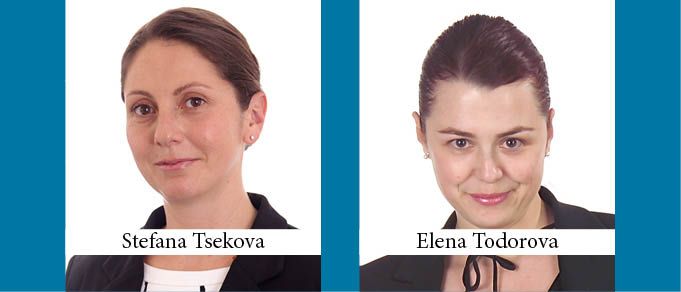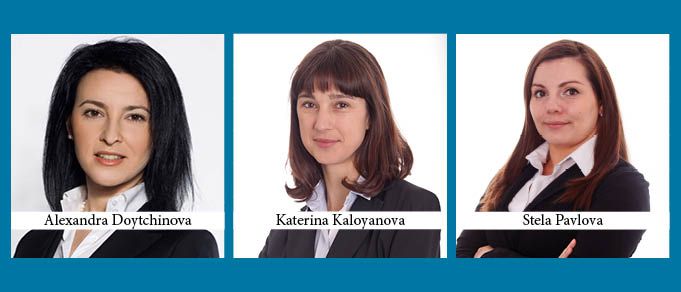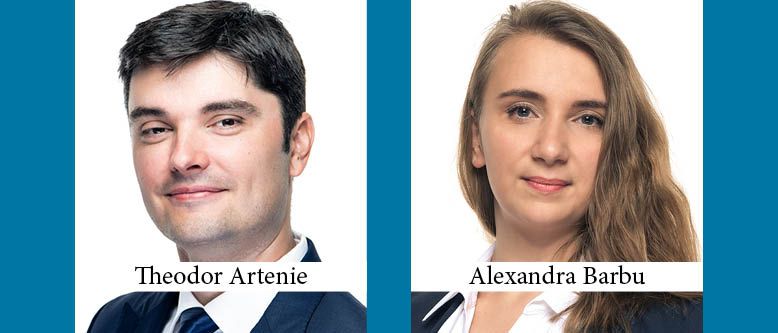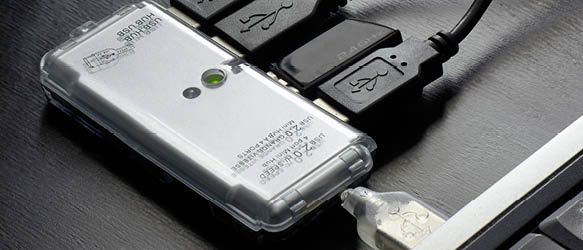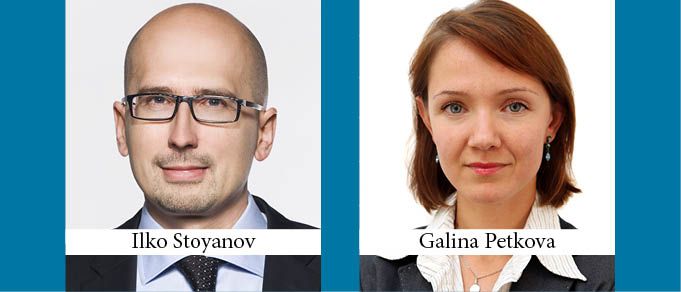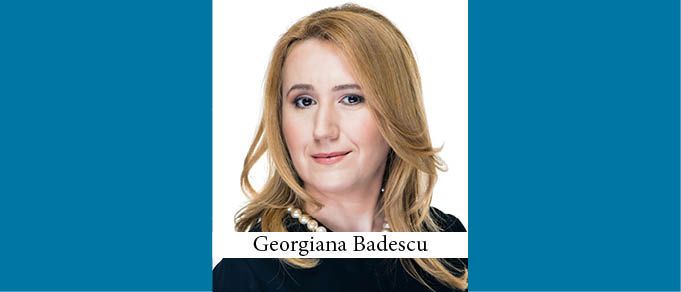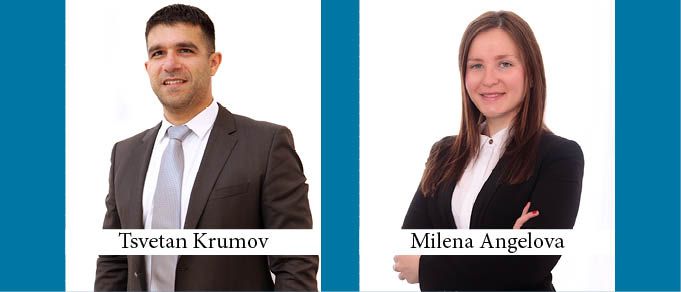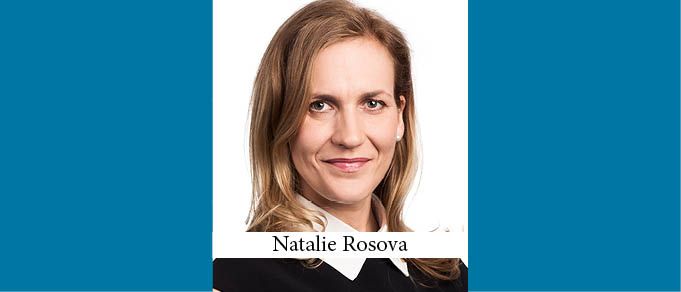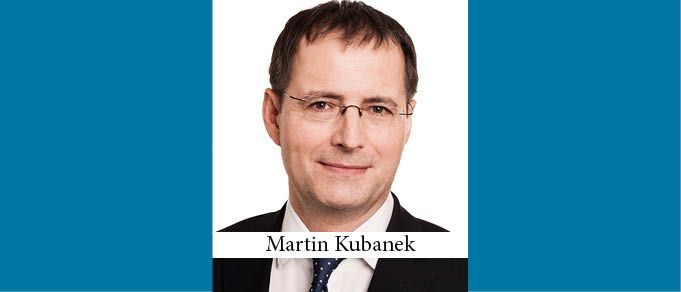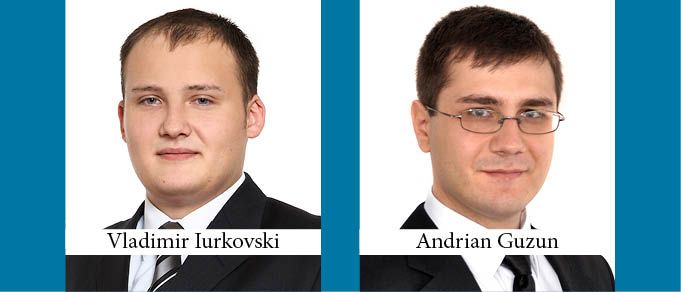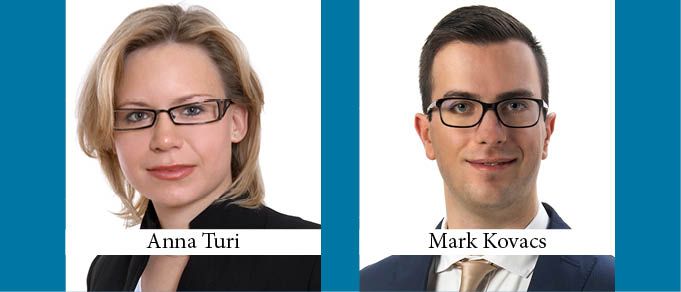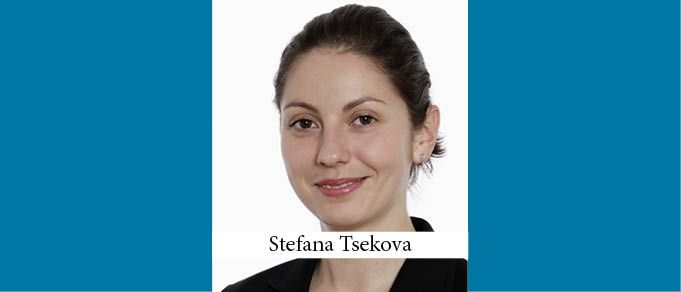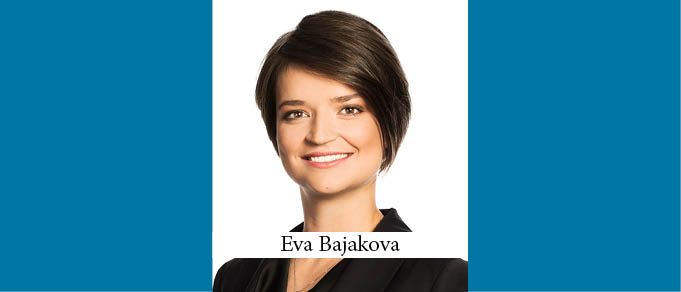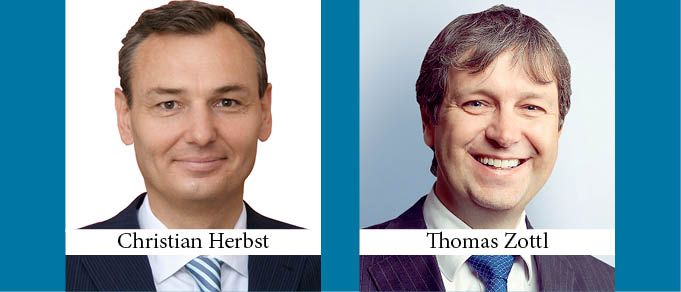Last year was a good one for the automotive industry in Bulgaria. According to information from the Automotive Cluster Bulgaria, a total of 12 projects worth more than EUR 500 million were in the process of implementation in late 2018 and early 2019. These projects are from companies like ETEM, Visteon, Leoni, Voss Automotive, Sensata, and Bosch; i.e. first-, second- and third-tier suppliers whose business is not solely tied to the automotive industry. According to the Cluster, the sector already covers more than 220 enterprises with a turnover of EUR 5 billion, which represents approximately 10% of Bulgaria’s GDP.
Bye to Britain: Schoenherr Sofia Draws Bulgarian Lawyers Home
Unimpressed by Picadilly Circus and Trafalgar Square, Stela Pavlova and Katerina Kaloyanova have, in recent years, left positions with high-powered international law firms in London to return to their native Bulgaria and join Schoenherr’s office in Sofia. Both insist the trade-offs were less dramatic than many assume … and both credit Schoenherr Bulgaria’s Managing Partner Alexandra Doytchinova with making them feel right at home.
The Excitement of the Vouchers Directive and Other Forms of Entertainment
The Vouchers Directive, which regulates the VAT treatment of vouchers across the EU Member States, was agreed upon by the Council of the EU in 2016, and caught the attention of Romanian authorities, tax advisors, and businesses at the end of 2017. Together with other Member States, Romania must design and enforce an appropriate legal framework to ensure the application of the Directive starting in 2019.
Strange Bedfellows: Austrian Law Firms Join Forces for Innovation Hub
On October 29, 2018, leading Austrian law firms Dorda, Eisenberger & Herzog, Herbst Kinsky, PHH, Schoenherr, SCWP Schindhelm, and Wolf Theiss announced their joint launch of the “Legal Tech Hub Vienna”: a non-profit forum for LegalTech companies, start-ups, and other legal market participants to identify innovation potential and work together to implement technological tools appearing ever-more-rapidly on the legal market.
First Decisions Prohibiting Concentrations Issued in Bulgaria
Two concentrations recently prohibited by the Bulgarian Commission for the Protection of Competition with limited analysis have been widely criticized for their lack of valid economic arguments. Because both decisions were highly publicized and concern the politically sensitive sectors of media and energy, they are worth special attention.
Readiness is All: Schoenherr Romania Helps Companies Comply with Competition Authority Guidelines
Romania’s Competition Council is one of the country’s most active and demanding regulatory authorities, with hundreds of sector inquiries and investigations conducted in two decades of activity and significant fines being levied against offenders each year. The powers of the RCC have increased in recent years, as a result of efforts to encourage and protect whistleblowers, new developments in forensic procedures, and cross-border cooperation and action. In addition, the European Commission’s March 22, 2017 proposal to empower national competition authorities is expected to increase the RCC’s reach and efficiency.
Case Law Developments Around Real Estate Financing
The Supreme Court of Bulgaria has clarified important aspects of enforcement over real estate assets that form part of an enterprise pledge.
Legal Regulation of Virtual Currencies in the Czech Republic
The legal regulation of transactions with virtual currencies and Initial Coin Offerings / Initial Token Offerings is a topic of ever more frequent discussion in the Czech Republic. The ano-nymity of cryptocurrency transactions has been reduced by the introduction of Anti-Money Laundering (AML) rules, while the Czech regulator’s approach to the regulation of trading with virtual currencies is very liberal.
Guest Editorial: Work to “International Standards” vs. Local Reality
Ever since the CEE market opened for private practice CEE lawyers have sought to work on international mandates in collaboration with international lead counsels. Apart from the obvious (we take an oath to serve justice, but it is no secret that we also in fact work for money), the benefits of this cooperation also include the opportunity to draw on the international counsel’s expertise, particularly in transactional work. Such cooperation has greatly influenced the work of local counsel. Those who seized the opportunity had a steep learning curve and developed their practices to a level that is generally referred to, mostly in lawyers’ own pitches, as reaching an “international standard.”
Dealer’s Choice Conference
Representatives of more than sixty law firms from across Central and Eastern Europe and from as far away as the United States, United Kingdom, and China came together in Prague on June 6, 2018, for the first ever Dealer’s Choice international law firm conference and CEE Deal of the Year Awards Banquet.
Deal of the Year Awards Banquet
After a valuable and information-rich day of panel discussions on important business development and law firm management topics, participants reconvened that evening (and were joined by several dozen newcomers) at the first ever CEE Legal Matters Annual Banquet and Deal of the Year Awards Ceremony – a celebration of CEE’s legal markets and the lawyers who work within them. Awards were presented for 17 qualifying markets in CEE – plus a surprise award for overall CEE Deal of the Year – with many of the lawyers playing key roles in nominated deals joining the celebration.
Changes in Real Estate Due Diligence on the Horizon?
When acquiring a company owning real estate or an independent property, a check of the seller’s title to the real estate is an integral part of the due diligence process. The scope of the due diligence that is necessary is about to be narrowed.
Serving the Start-Ups: A Czech and Slovak Round Table
Start-Ups represent a unique subset of clients for major law firms, as they are often unable to pay the fees those firms generally require, but – particularly in the tech sector – hold out the potential of significant profitability down the road. Intrigued by the unique challenges and opportunities for law firms offering their services to these cash-poor but potential-high clients, we invited partners from four prominent law firms in the Czech Republic and Slovakia to share their strategies and experiences with Start-ups with us in the offices of Kocian Solc Balastik in Prague. KSB Partner Christian Blatchford moderated the conversation.
General Requirements for Land Acquisitions by Foreigners in Moldova
Generally, foreigners in Moldova have the same rights and freedoms as Moldovan citizens. This general rule applies, inter alia, to acquisitions by foreigners of immovable assets. In other words, Moldovan legislation does not require that foreign individuals or legal entities obtain any permits to acquire land plots in the country beyond those required for Moldovan citizens. However, certain exceptions and requirements apply when it comes to land acquisition.
Competition: Leniency After the Antitrust Damages Directive in Hungary: A Compromise Between Private and Public Interests?
Fighting against cartels has always been crucial to protecting fair competition and fostering economic growth. A proper leniency program is an important instrument for the competition authorities, allowing them to uncover and penalize such anticompetitive conduct.
Codes of Conduct: The Key to GDPR Compliance for SMEs
After years of anticipation, the EU General Data Protection Regulation (GDPR) entered into force and took effect on May 25, 2018, bringing about several changes to Europe’s current data protection regime.
Gauging the GDPR in the Czech Republic
On May 25, 2018, the General Data Protection Regulation finally came into effect, imposing new requirements on organizations within the European Union and on those outside the EU that offer goods or services to EU data subjects or monitor their behavior. To learn more about the state of readiness in one such country, we spoke to Schoenherr attorney and Data Protection specialist Eva Bajakova in Prague.
Inside Out: Schoenherr and Freshfields Advise on Vonovia Public Takeover Offer for BUWOG
On January 4, 2018 CEE Legal Matters reported that Schoenherr had advised BUWOG AG and Freshfields Bruckhaus Deringer had advised Vonovia SE on Vonovia’s voluntary public takeover bid of BUWOG. The takeover offer placed the enterprise value of BUWOG at around EUR 5.2 billion. We reached out to several of the individuals involved in the deal for information: Christian Herbst, Partner, Schoenherr and Thomas Zottl, Partner, Freshfields Bruckhaus Deringer

